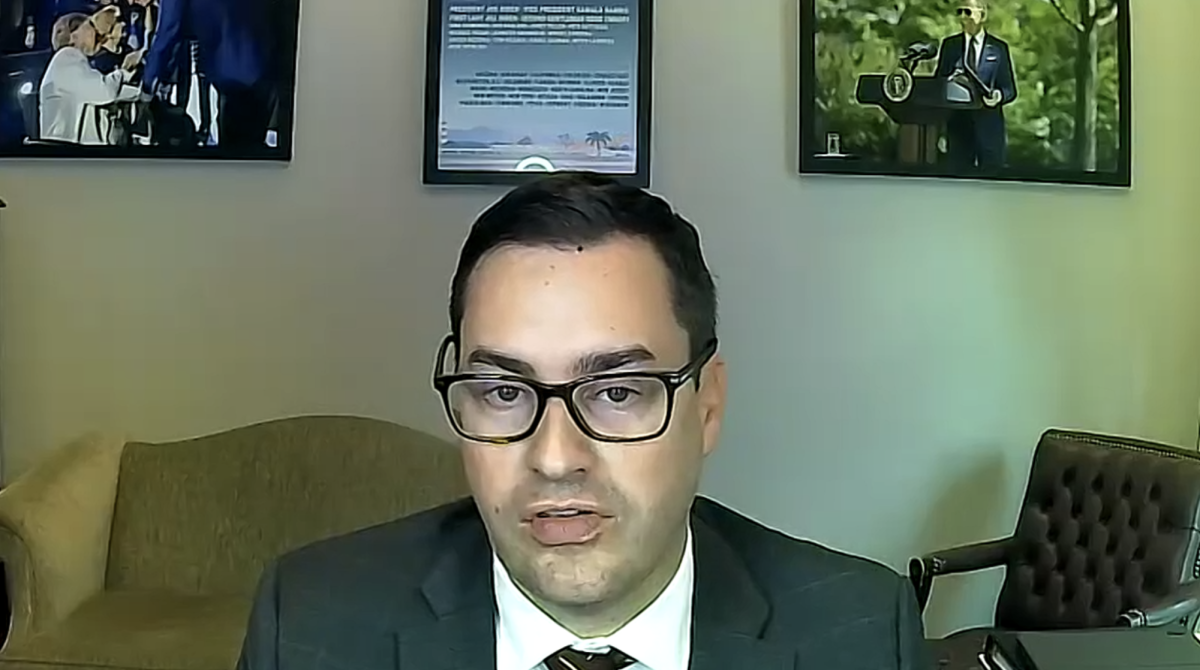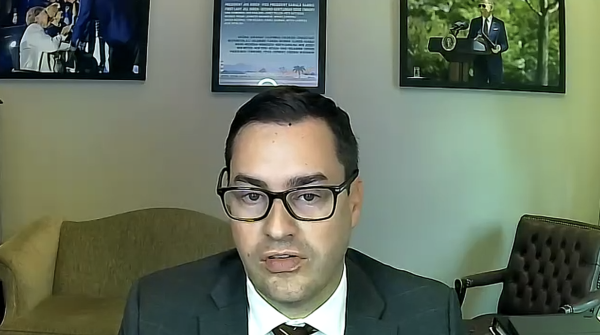White House advisors held a campus press briefing on Sept. 25, inviting student publications across the country, including The Daily Texan, to share the Biden administration’s plan to address college affordability, mental health and climate change.
College Affordability
With over $1.77 trillion of student loan debt in the United States, President Joe Biden has pushed forward efforts to cancel student loan debt for the past year.
“President Biden understands the importance of higher education,” said Ben LaBolt, White House communications director. “It’s got the power to unlock doors of opportunities for millions of students.”
One of the efforts LaBolt highlighted was the launch of the Saving on a Valuable Education Plan, also known as the SAVE Plan, last month. The repayment plan depends on the borrower’s income and their family size, with any remaining balance forgiven after a certain amount of years, LaBolt said. Critics such as Bill Cassidy, a U.S. Senator and ranking member of the Senate Health, Education, Labor and Pensions (HELP) Committee, called the plan “deeply unfair.”
“Four million borrowers are already enrolled in the SAVE plan,” LaBolt said. “This plan cuts borrowers’ monthly payments to zero if they make less than $30,000 a year. They make more than $30,000 a year, this plan saves about $1,000 a year.”
Additionally, starting this fall, students who are eligible for Pell Grants could see an increase in the amount they receive, LaBolt said. President Biden secured a $500 increase to the maximum Federal Pell Grant amount for the 2023-24 year, raising it to $7,395.
These efforts have led to the cancellation of $117 billion in student loan debt for more than three million borrowers, LaBolt said.
“The President’s hope is that all of these plans and all of these actions reassure students, reassure alumni, that the President has your back and he won’t stop fighting to bring the promise of affordability to more students and families,” LaBolt said.
Mental Health
Nearly half of young adults in the U.S. struggled with their mental health during the pandemic. LaBolt said as students across the country struggle with a range of mental health issues, the Biden administration has been committed to making mental healthcare on par with physical healthcare.
LaBolt said under some insurers, it’s harder to access mental healthcare due to limited options of providers and long wait times.
“The administration has proposed a regulation that would strengthen requirements for insurers to provide access to mental health care in the same way that they do for physical health,” LaBolt said. “The regulation is still being evaluated, but we’re hopeful that it’ll be finalized soon and implemented.”
The Biden administration is investing $200 million into 988, the National Suicide and Crisis Hotline. According to a press release from the Substance Abuse and Mental Health Services Administration, the funding will improve the recruiting, hiring and training of 988 workers, support infrastructure with improvements to technology and security, improve support for high-risk and underserved populations and more.
Climate change
LaBolt went on to talk about the President’s efforts to combat climate change. The Inflation Reduction Act aims to cut the country’s emissions to 50-52% below 2005 levels by 2030.
“(The Inflation Reduction Act) is expected to double the amount of solar, wind and batteries that we can deploy across the country in the next 10 years as we transition to renewables,” LaBolt said. “It’s part of the President’s broader efforts to reduce greenhouse gas emissions across sectors, how we power our homes, how we travel and more.”
However, critics have argued that the act has only increased inflation and prices of different commodities such as gas, while others have praised it for doing what it sought out to do.
The Biden administration announced last week the launch of the American Climate Corps. The initiative aims to train 20,000 young people to fight the climate crisis, LaBolt said. According to the initiative’s website, American Climate Corps members will have the skills necessary to access high-demand jobs in the “clean energy economy.”
“This will train them to do things like restore lands and waters, bolster community resilience, deploy clean energy, and implement energy-efficient technologies,” LaBolt said.
















